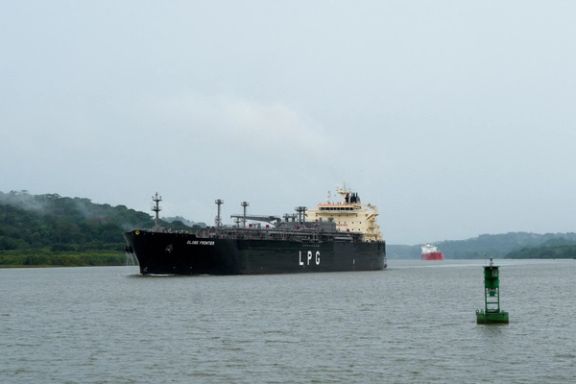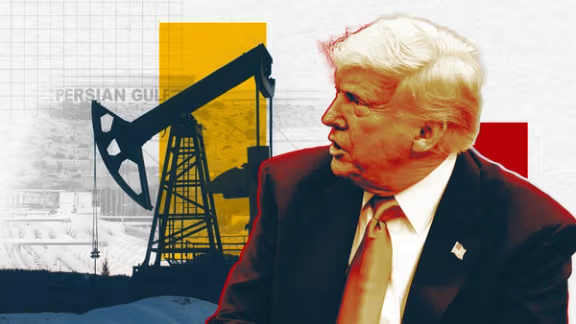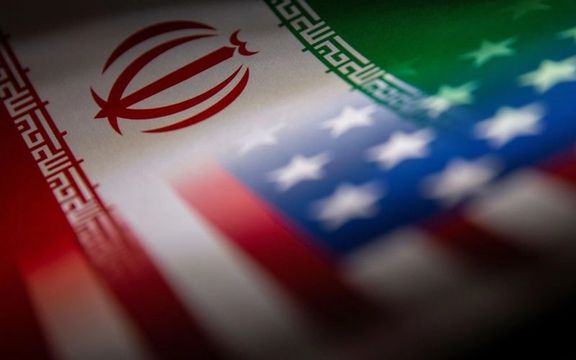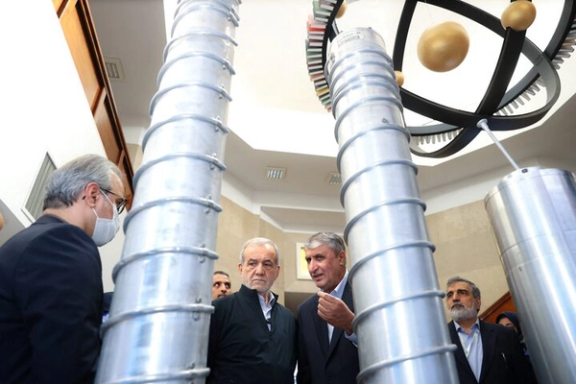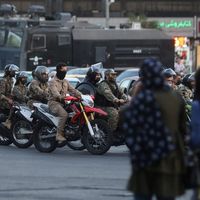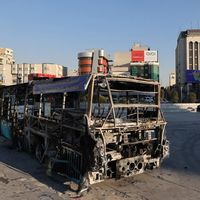“It must be clear to us how the oppressive sanctions against the Iranian people will be lifted, to ensure that past experiences are not repeated,” Ministry spokesman Esmaeil Baghaei told reporters in Tehran.
"I regret to inform you that the American side has not yet been willing to clarify this issue," Baghaei said at his weekly press.
The White House ordered a freeze on new sanctions activity on Iran last week, The Wall Street Journal reported on Sunday, pausing President Donald Trump’s so-called maximum pressure campaign against Tehran.
Oman's Foreign Minister Badr bin Hamad al-Busaidi visited Tehran on Saturday to deliver what Iran described as "elements of a US proposal" related to a possible nuclear agreement.
Muscat has been mediating between Iran and the United States as the two countries seek a breakthrough following five rounds of indirect talks last held in Rome this month.
US proposal under review
Baghaei emphasized that receiving a written text from the US did not signal any agreement on Iran's part.
"Certainly, receiving a text does not mean it is accepted, nor even that it is acceptable," he said. "Exchange of documents is a common practice in all negotiation processes."
Any proposal, Baghaei added, containing “radical and maximalist demands” which ignores what he called the legitimate rights and interests of the Iranian people would not receive a positive response from Tehran.
“The red lines of Iran will be the basis for our response to the American proposal,” he said, underlining the centrality of Iran’s uranium enrichment program and the demand for effective lifting of sanctions.
Iran accuses IAEA of bias
Baghaei also addressed the latest report by the International Atomic Energy Agency (IAEA), saying it was prepared under pressure from certain Western countries.
“The report contains mostly repetitive content, and some technical matters have been exaggerated,” he said. “We are certain that this report was prepared under pressure from specific countries.”
Documents seen by the IAEA showed that Iran carried out secret nuclear activities with material not declared to the UN nuclear watchdog at three locations which have long been under investigation, Reuters reported last week.
Baghaei criticized what he described as a long-standing pattern of Western states using international organizations for political purposes. “Unfortunately, this has become an undesirable trend over the past two decades,” he added.
He said that Iran’s nuclear activities remain under full monitoring by the agency and warned against misrepresenting internal procedural issues—such as revoking the accreditation of a few inspectors—while ignoring the continued presence of 125 active inspectors in the country.
Israel using nuclear issue to sway US policy, Iran says
Responding to longstanding allegations that Iran seeks to develop nuclear weapons, Baghaei argued that such claims have been used politically by Israel to influence US foreign policy.
“If you review the reports on Iran’s nuclear issue, you will see that since 1984, officials from the Zionist regime have claimed that Iran would obtain a nuclear bomb within six months,” he said. “It’s been nearly 40 years. The peaceful nature of our nuclear program has been consistently proven.”
He added, “Israel’s concern is not about a nuclear Iran, but about losing its ability to impose its will in the region and control US foreign policy.”
No clarity from US yet
Baghaei said that Iran’s key demand remains the complete and verifiable removal of economic sanctions.
“In the nuclear field, the matter is clear to us. If America’s concern is the absence of nuclear weapons, that issue is already resolved,” he said. “What matters is ensuring the real and observable end of the sanctions imposed over the past decades.”
He explained that Iran seeks to see practical outcomes, including improvements in banking, trade, and economic relations.
Iran will respond to any new sanctions
The Iranian spokesman also took issue with recent proposals by some US lawmakers to make certain sanctions permanent.
“This is a clear contradiction in the US approach,” Baghaei said. “On one hand, they claim to support diplomacy, but on the other, they reinforce the very obstacles that prevent any understanding.”
He said Iran regards any new sanctions as “a sign of the lack of seriousness and real intent on the part of the United States to advance diplomatic efforts.”
On the potential activation of the “snapback” mechanism—formally known as the dispute resolution process under the 2015 nuclear deal—Baghaei warned, “We have anticipated multiple scenarios. If such a mechanism is triggered by European signatories, we will respond in kind and appropriately.”
Consortium cannot replace enrichment inside Iran
Baghaei also said that any proposal to replace Iran's domestic uranium enrichment with a multinational consortium is unacceptable.
“This idea is not new, and it’s not surprising that negotiating parties continue to raise it. But the consortium proposal can in no way replace enrichment on Iranian soil.”
Baghaei added that while Iran is willing to participate in such initiatives, it would not consider any arrangement that undermines what Tehran sees as its sovereign right under international law.
Iran remains under global sanctions not only for its nuclear program but also over its human rights record at home, and supporting Russia's war on Ukraine. The situation has left Iran's economy in its worst state since the founding of the Islamic Republic in 1979.
